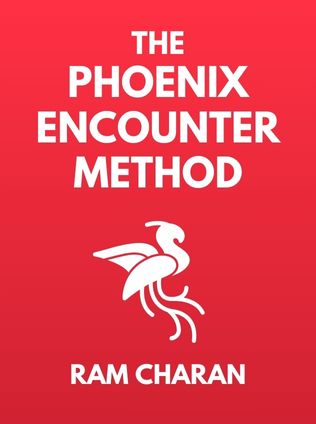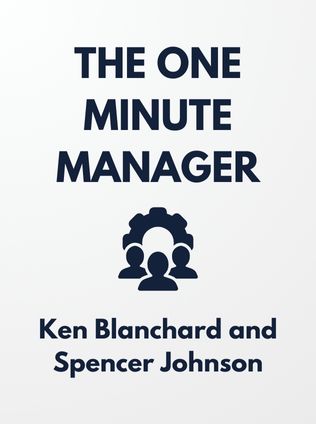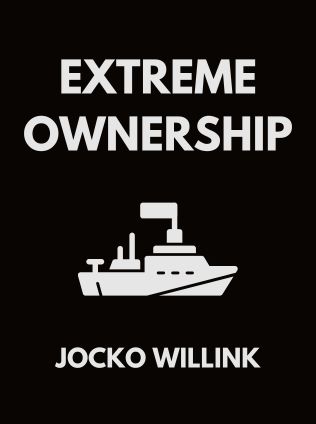
The Phoenix Encounter Method
Lead Like Your Business Is on Fire!
By Ram Charan,
Published 10/2020
About the Author
Ian C. Woodward, V. Padmanabhan, Sameer Hasija, and Ram Charan are the co-authors of The Phoenix Encounter Method: Lead Like Your Business Is on Fire!. Woodward is a Professor of Management Practice at INSEAD, known for his expertise in strategic thinking, leadership, and communication. Padmanabhan holds the Unilever Chaired Professorship in Marketing at INSEAD and is the Academic Director of the Emerging Markets Institute. Hasija, also an INSEAD professor, specializes in Technology and Operations Management. Charan is a globally renowned business advisor and the author of more than 25 influential business books. Together, these authors bring a wealth of knowledge and experience, offering a unique perspective on navigating the complexities of modern business environments.
Main Idea
The core concept of The Phoenix Encounter Method is that leaders must embrace disruption and transformation to ensure their organization's survival and growth. The authors advocate for a radical approach where leaders must be willing to metaphorically "burn" their existing business models to the ground, allowing new, innovative ideas to rise from the ashes, much like the mythical phoenix. This process is designed to challenge entrenched mindsets, encourage proactive adaptation to market changes, and foster continuous renewal. The Phoenix Encounter Method is not just about coping with change but actively seeking it out and leveraging it as a strategic advantage.
Table of Contents
- Introduction: The Phoenix Attitude
- Phoenix Seeking: Encounter Groundwork
- Phoenix Burning: Encounter Battlefield
- Phoenix Rising: Encounter Breakthrough
- The Phoenix Attitude: Dreamers and Doers
- All Digital Firepower, All the Time
- Firepower From Combinatorial Innovation
- Blueprint for Breakthrough
- Conclusion: Embracing the Phoenix Encounter Method
Introduction: The Phoenix Attitude
The introduction of the book sets the stage by presenting the "Phoenix Attitude," a mindset characterized by resilience, adaptability, and a willingness to embrace radical change. The authors argue that in an era of rapid technological advancements and volatile market dynamics, traditional leadership models are insufficient. Leaders must instead adopt a Phoenix Attitude, which involves a willingness to destroy outdated business practices and rebuild anew. This attitude is essential for leaders who want to stay ahead of the curve and navigate the challenges of the modern business landscape.
"Leaders with the Phoenix Attitude will discover that you are absolutely your own best enemy. This is a virtuous cycle of renewal and transformation—an insurance policy against complacency and hubris." - Ian C. Woodward
The Phoenix symbolizes rebirth and renewal, a fitting metaphor for the process the authors advocate. By adopting the Phoenix Attitude, leaders are encouraged to continuously question their assumptions, challenge the status quo, and embrace change as an opportunity for growth. This approach is particularly relevant in today's fast-paced, ever-changing business environment, where staying stagnant is not an option.
Phoenix Seeking: Encounter Groundwork
The first phase, "Phoenix Seeking," focuses on establishing a foundation for transformation. This involves a thorough analysis of the organization's current state, including its strengths, weaknesses, opportunities, and threats. Leaders are encouraged to engage in deep introspection and critical thinking, questioning long-held beliefs and assumptions that may no longer be valid.
Sign up for FREE and get access to 1,400+ books summaries.
You May Also Like
The Lean Startup
How Today's Entrepreneurs Use Continuous Innovation to Create Radically Successful Businesses
By Eric RiesWho Moved My Cheese?
An Amazing Way to Deal with Change in Your Work and in Your Life
By Spencer Johnson, M.D.Make Your Bed
Little Things That Can Change Your Life...And Maybe the World
By William H. McRavenThe Ride of a Lifetime
Lessons Learned from 15 Years as CEO of the Walt Disney Company
By Robert IgerThe Hard Thing About Hard Things
Building a Business When There Are No Easy Answers
By Ben Horowitz



















